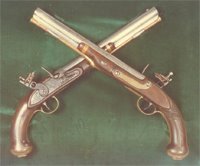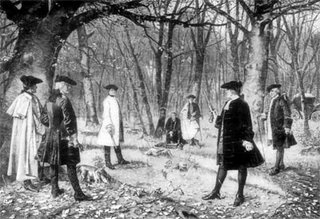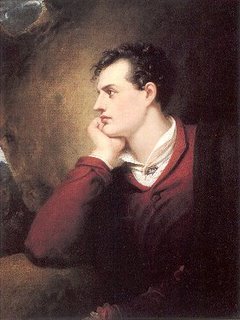 Yes, dueling was indeed still going on in the Regency even though it was illegal and if you were caught, you were tried and so were your seconds..
Yes, dueling was indeed still going on in the Regency even though it was illegal and if you were caught, you were tried and so were your seconds..
Peers could be tried in the House of Lords and non-peers in regular courts. Several times the survivor was not charged when everyone testified that it had not been cold blooded murder but a duel and that all the rituals of the duel had been followed. It really depended on the magistrate
Because of the danger of arrest by a passing constable, duels were often taken out into the country, as it was then. Chalk Farm was cited as a favorite spot, as was Primrose Hill and Westbourne, which are now of course within London. However, duels did also take place in Hyde Park and of course always at dawn.
The most famous American duel was Alexander Hamilton dueling with Aaron Burr above, though I gather they were routine in the Missouri Basin for settling political disputes. Hamilton met Burr in Weehawken, New Jersey, on July 11, 1804, and fired pistols at each other simultaneously. Burr's shot hit Hamilton, while Hamilton shot into the air. There is speculation that he fired that way intentionally so as not to hit Burr, though some think his shot was thrown off when he was struck by Burr's bullet. Hamilton died the next day.
Lord Byron, yes that gorgeous wickedly famous poet, was actually tried in the House of Lords for dueling.
The Duke of Wellington (who you met and failed to identify in an earlier post) fought Lord Winchilsea a political opponent against catholic emancipation at Battersea Park in 1829 over heated words in the House of Commons. Neither man was hurt, but honor was deemed satisfied. Wellington and fought a duel in Battersea Park in March 1829. The two deliberately missed each other in firing, and honour was satisfied.
And then there were the rules. I will talk more about them and the weapons of choice next Tuesday.
In the meantime I will post some more links to this topic on my website.
No comments:
Post a Comment